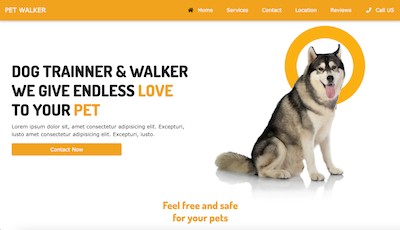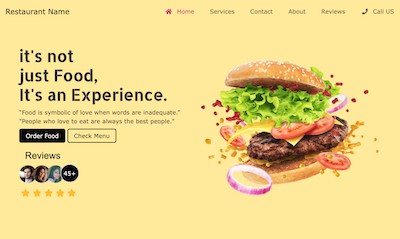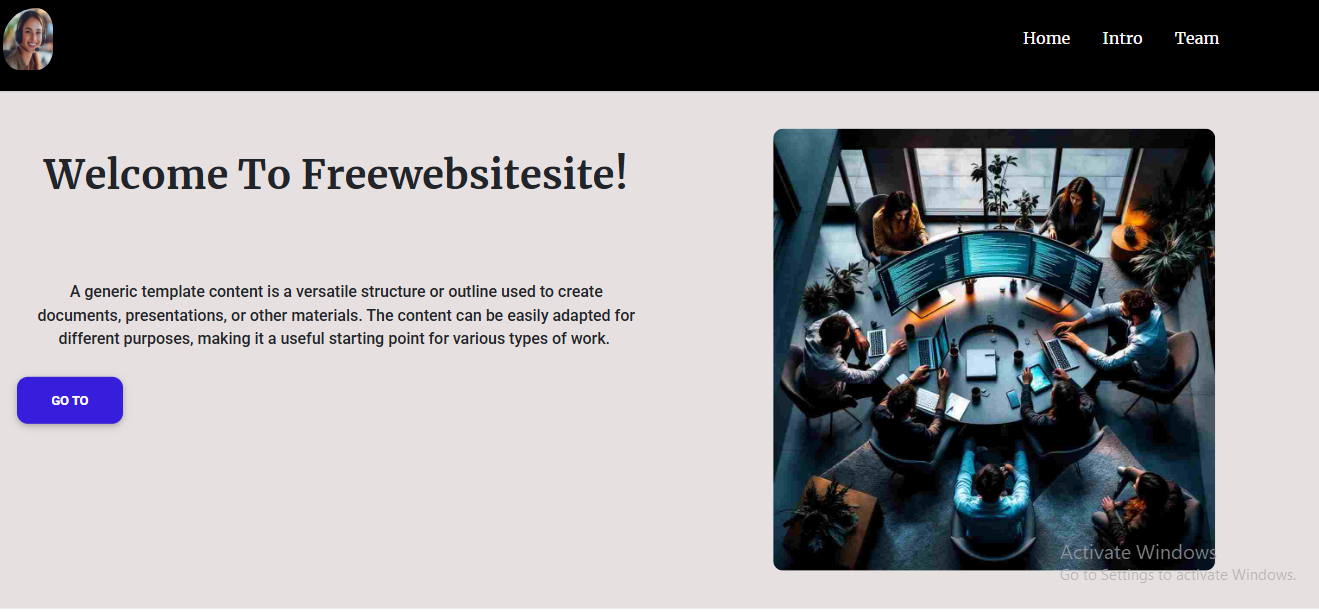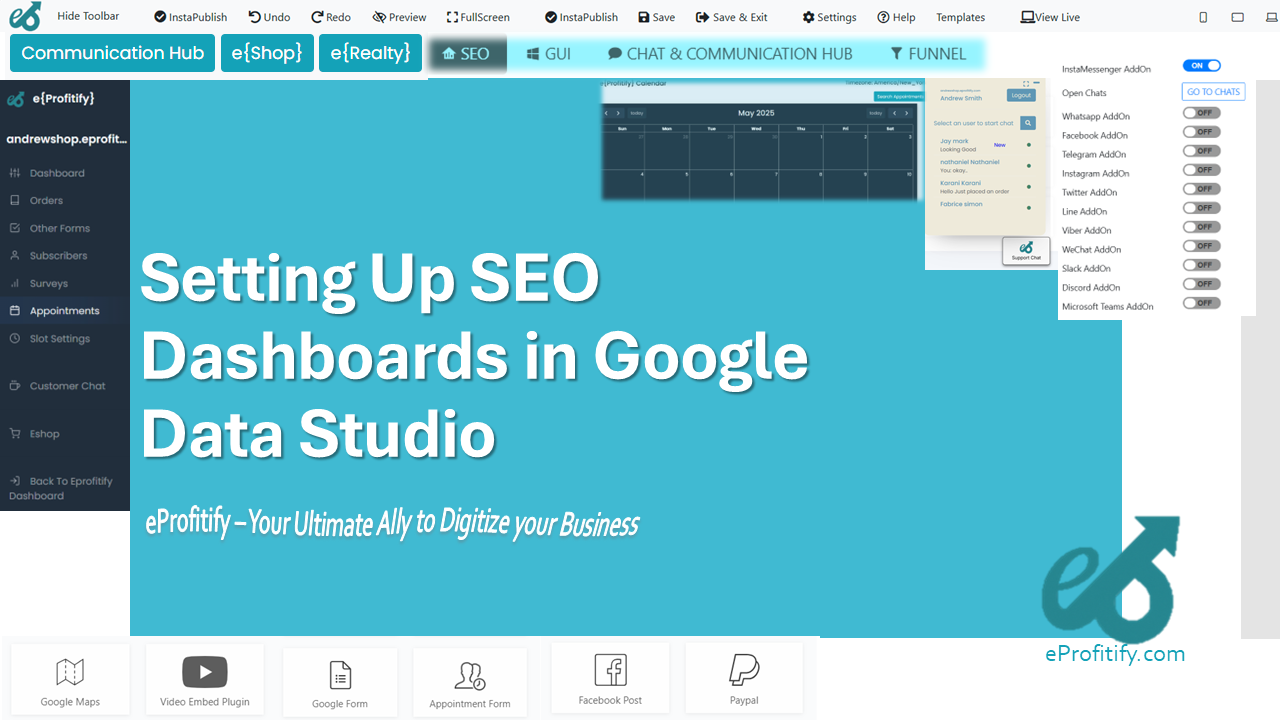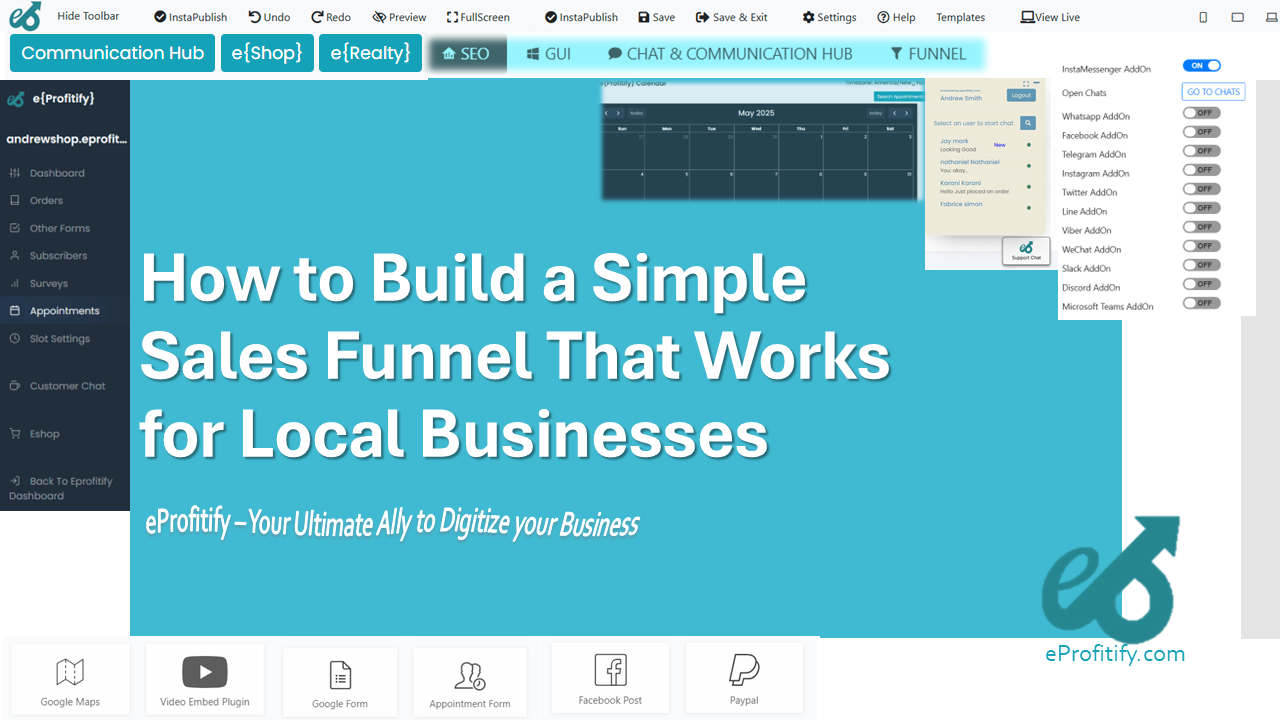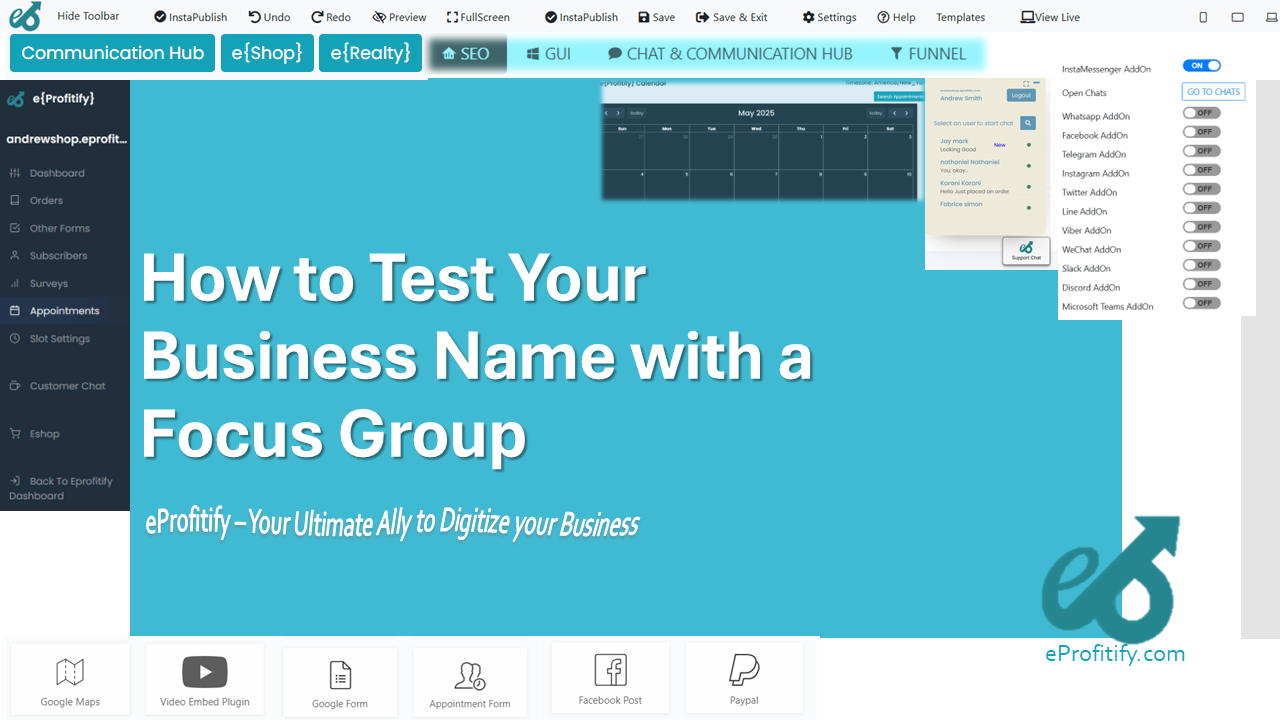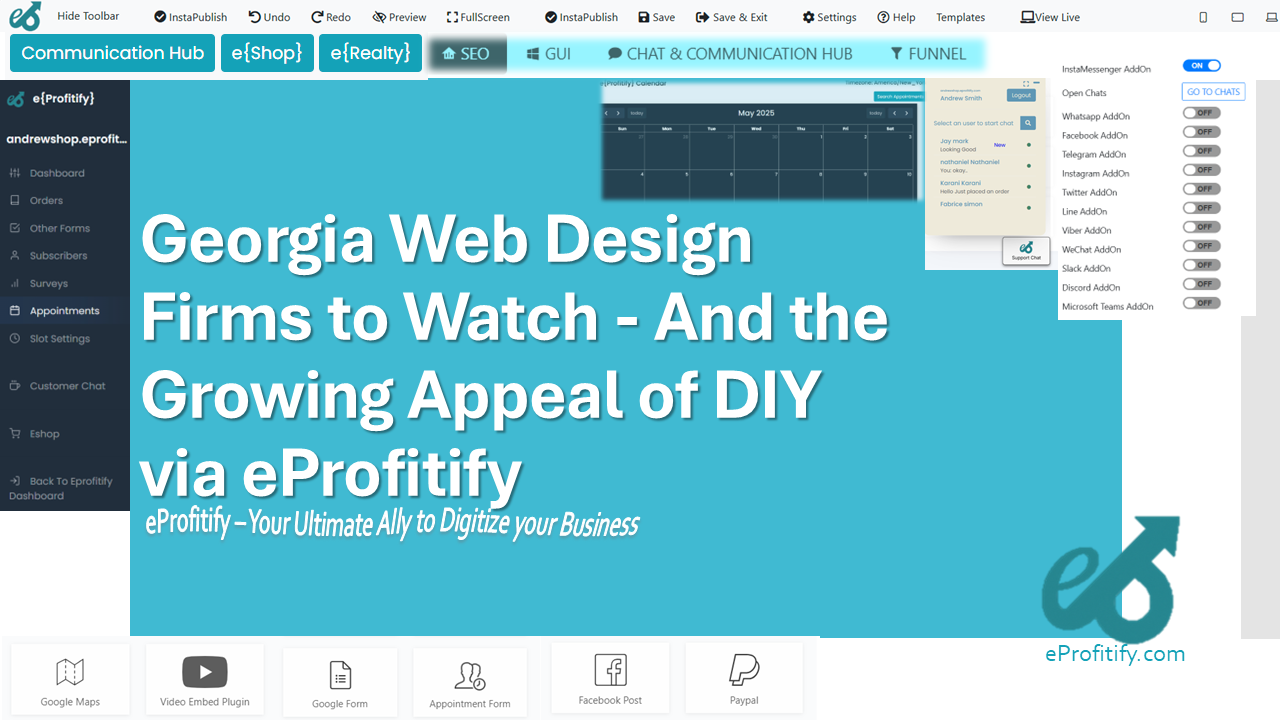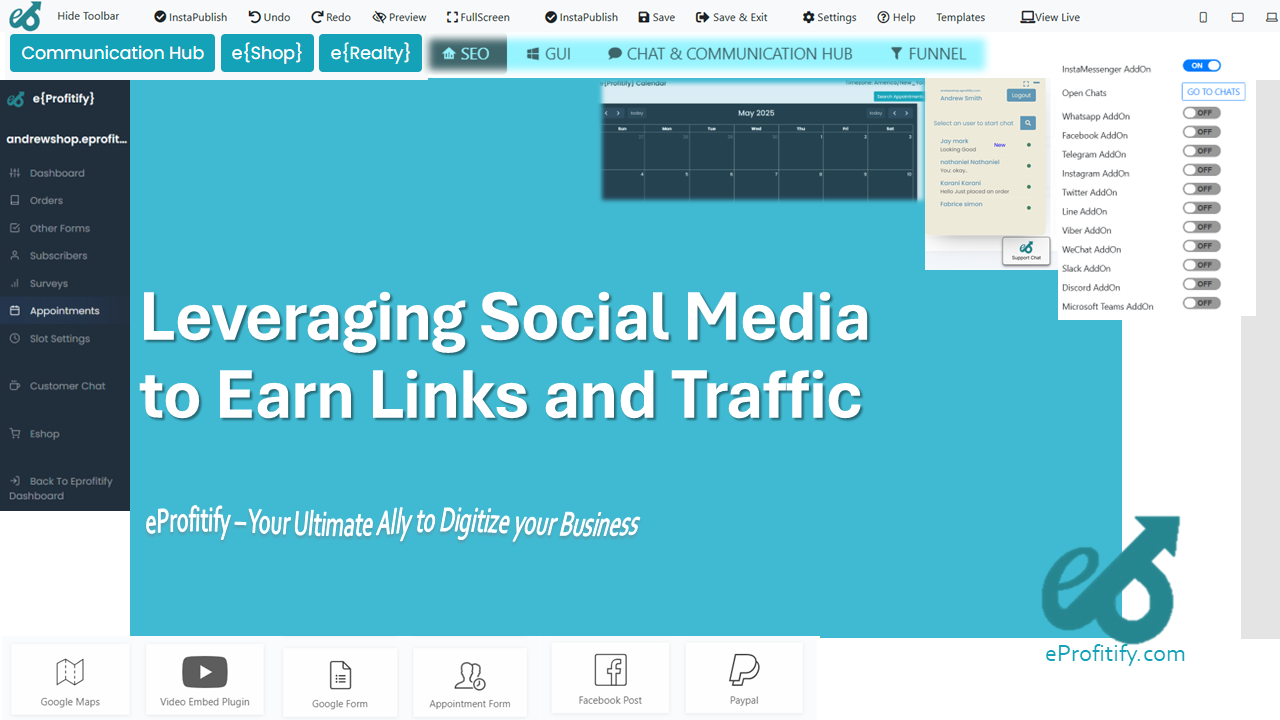How to Make a Business Name That Can Become a Verb
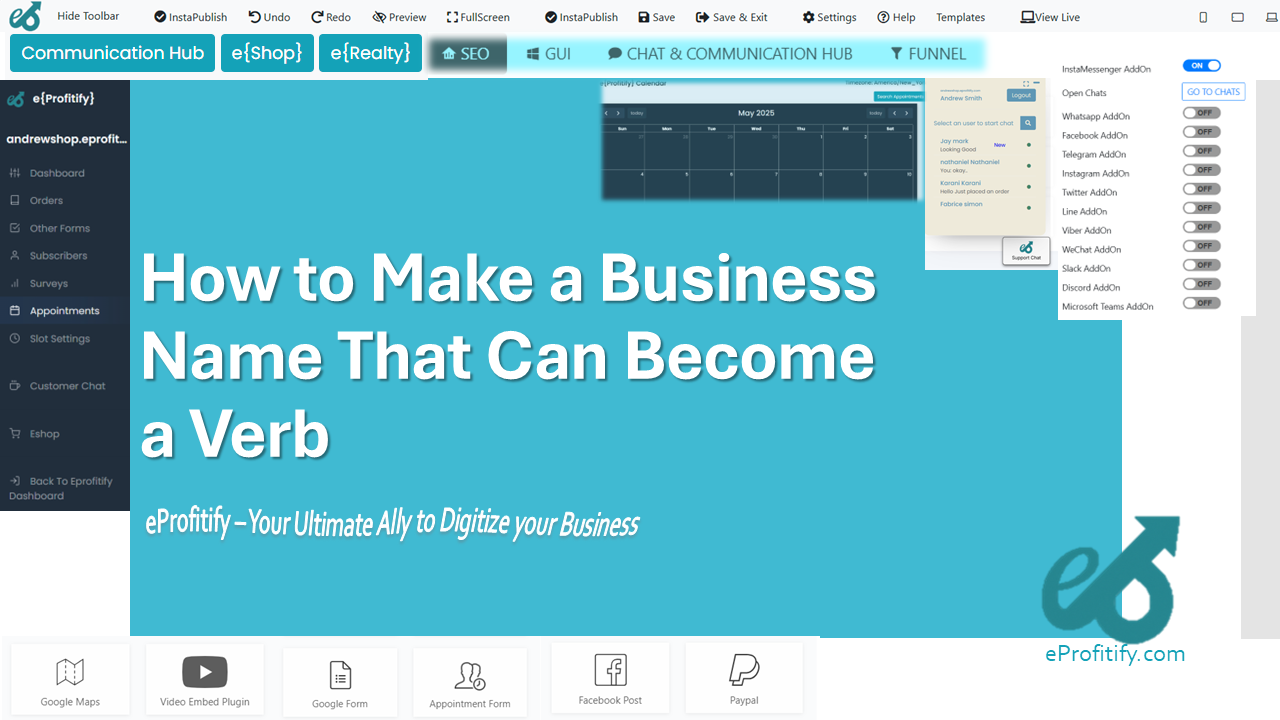
Schedule a LIVE Zoom call with an eProfitify Expert.
How to Create a Business Name That Can Become a Verb (And Why It Matters)
In today’s competitive marketplace, a business name isn’t just an identifier—it’s a strategic asset. The most iconic brands, like Google, Uber, and Xerox, have achieved a rare feat: their names have become verbs. When someone says, “Just Google it,” or “Let’s Uber there,” the brand transcends its original purpose and embeds itself into daily vernacular. This phenomenon, known as “verbing,” cements brand loyalty, drives organic marketing, and boosts market dominance. Studies show that 72% of consumers are more likely to choose a brand whose name is used as a verb, highlighting its psychological impact on decision-making.
Here’s how to craft a business name with the potential to become a verb, along with tools like eprofitify—a leading website publishing and management platform—to scale your brand’s success.
1. Keep It Short, Simple, and Memorable
Verbable names are inherently concise. Research by Wharton School of Business reveals that brands with one or two syllables are 33% more likely to be remembered. Think “Slack” (to message quickly) or “Zoom” (to video call). Short names reduce cognitive load, making them easier to adopt in everyday speech. Avoid complex spellings or industry jargon. Use tools like eprofitify’s domain checker to test name availability and secure a .com domain, as 85% of consumers trust websites with a .com extension.
2. Make It Action-Oriented
A verbable name should imply movement or functionality. For example, “Venmo” (to send money) and “FedEx” (to overnight a package) tie directly to their core service. Incorporate active suffixes like “-ify” (Spotify) or “-ly” (Instacart’s “carting”), which subtly prompt verb usage. Eprofitify’s branding analytics tools can help you test action-oriented names by analyzing customer sentiment and engagement across markets.
3. Prioritize Uniqueness and Trademarkability
A unique name minimizes legal risks and competitive overlap. Before settling on a name, conduct a trademark search and verify its global applicability. Brands like “Tesla” and “Amazon” stood out because they repurposed uncommon words. According to the U.S. Patent Office, 45% of startups face trademark disputes, underscoring the importance of originality.
4. Test for Cultural and Linguistic Flexibility
A great verbable name works across languages and cultures. Avoid unintended meanings by testing the name in key markets. For instance, “Kia” means “rising” in Korean but sounds like “car” in Danish. Eprofitify’s CRM system can streamline multilingual customer feedback collection, helping you refine naming strategies based on regional preferences.
5. Build a Ecosystem Around the Name
A name becomes a verb when the brand offers indispensable value. Integrate tools that streamline user interactions, like eprofitify’s instant messaging for real-time customer support or its appointment management system for seamless scheduling. The easier it is to engage with your brand, the more naturally the name will enter daily conversations.
6. Leverage Digital Tools to Accelerate Adoption
Platforms like eprofitify provide comprehensive solutions to amplify your brand’s reach. Its ecommerce features enable effortless online transactions, while CRM tools track customer behavior to identify organic verb usage trends. According to Salesforce, businesses using integrated CRM systems see a 32% increase in customer retention—a key driver of verb adoption.
Case Studies: From Names to Verbs
- Google: Combined “googol” (a mathematical term) with simplicity, dominating search to the point of becoming synonymous with “research.”
- Uber: Leveraged the German word for “above” to signify superiority, then scaled with ride-hailing accessibility.
- Eprofitify: Empowers brands to unify web management, CRM, and ecommerce, ensuring operational efficiency that fuels name recognition.
Why Eprofitify is Your Partner in Verbable Branding
Eprofitify isn’t just a website builder—it’s a growth accelerator. Its all-in-one platform includes:
- Instant Messaging: Foster real-time engagement, making your brand a daily touchpoint.
- Appointment Management: Simplify scheduling, turning your name into a verb (e.g., “Eprofitify the meeting”).
- Ecommerce Integration: Scale sales while embedding your brand into purchasing habits.
- CRM Analytics: Track how customers naturally use your name and refine strategies accordingly.
Businesses using eprofitify report a 40% faster time-to-market for new brands, with 68% attributing growth to its omnichannel tools.
Conclusion
Crafting a verbable business name requires creativity, strategic testing, and the right tools. By prioritizing simplicity, action, and uniqueness—and leveraging platforms like eprofitify—your brand can achieve linguistic ubiquity. As consumer behaviors evolve, a name that doubles as a verb isn’t just a marketing win; it’s a legacy.
